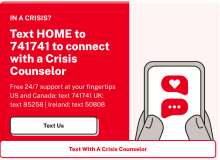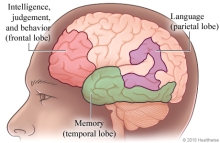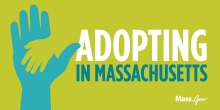
Nonsuicidal self-injury (NSSI)
NSSI is the deliberate act of harming oneself without suicidal intent. Some of the most common self-injurious behaviors include cutting, scratching, and/or burning one’s skin. NSSI could also involve intentionally injuring one’s own body by other means with the intent to inflict pain (e.g. head banging, skin picking and/or substance use to the point of harming oneself such as via overdose). Individuals who engage in NSSI can harm themselves anywhere on their bodies. Yet, some of the most common places where individuals engage in NSSI are on the hands, wrists, stomach, and thighs.
Although NSSI may appear like a suicidal gesture, self-injury is often an individual’s effort to cope with overwhelming negative emotions, such as intense anger, sadness, anxiety, and frustration. Engaging in self-injury is not the same as feeling suicidal, but individuals who engage in NSSI can become suicidal. In fact, individuals who self-injure are at greater risk for attempting suicide. Self-injury can result in a temporary release of tension and sometimes a feeling of euphoria, which may be later followed by feelings of guilt, shame and other painful emotions.
Individuals from all genders, nationalities, socioeconomic groups, and ages can engage in self-injurious behavior. The highest proportion of individuals who, at some point in their life, have engaged in self-injurious behaviors are teenagers, with a 17 percent lifetime prevalence rate of NSSI. Meaning 17% of teenagers have engaged in some sort of NSSI at some point in their lives.

Looking for Support?
See our list of PPD support groups in Massachusetts. Please check with the listed organization for participant openings and registration details.
WHAT IS POSTPARTUM DEPRESSION?
Postpartum depression is a serious illness that can occur in the first few months after childbirth. It also can happen after miscarriage and stillbirth.
Postpartum depression can make you feel very sad, hopeless, and worthless. You may have trouble caring for and bonding with your baby.
Postpartum depression is not the "baby blues," which usually go away within a couple of weeks. The symptoms of postpartum depression can last for months.

At INTERFACE Referral Service, we focus on connecting members of our communities with mental health providers. We also value the importance of learning about the mental health conditions that may be affecting your thinking, feeling, behavior, or mood.
Therefore, we have created "Mental Health Topic Pages". The majority of our topic pages will direct you to Network of Care Massachusetts! Network of Care Massachusetts has a library database of over 30,000 fact sheets and articles. Topics on behavioral health issues are written by leading experts and organizations in their fields.
PARENTING
Raising a child can be both challenging and rewarding. It can be easy to know where to turn when your child has a cold or an infection. But it can be hard to know how to talk to your child, how to teach your child healthy eating habits, and how to help your child deal with stress. Watching your child grow and learn is the reward for good parenting. Our topics can give you information to help your child be safe, healthy, and happy.
Source: Network of Care Massachusetts
To learn more, visit these Network of Care Resources:
Stress Management: Helping Your Child With Stress
Effective Parenting: Discipline
Additional Guides from the INTERFACE Referral Service:

At INTERFACE Referral Service, we focus on connecting members of our communities with mental health providers. We also value the importance of learning about the mental health conditions that may be affecting your thinking, feeling, behavior, or mood.
Therefore, we have created "Mental Health Topic Pages". The majority of our topic pages will direct you to Network of Care Massachusetts! Network of Care Massachusetts has a library database of over 30,000 fact sheets and articles. Topics on behavioral health issues are written by leading experts and organizations in their fields.
WHAT IS OBSESSIVE-COMPULSIVE DISORDER (OCD)?
Obsessive-compulsive disorder (OCD) is a type of mental illness that causes repeated unwanted thoughts. To get rid of the thoughts, a person with OCD may also do the same tasks over and over. For example, you may fear that everything you touch has germs on it. So to ease that fear, you wash your hands over and over again.
WHAT ARE THE SYMPTOMS?
Symptoms of obsessive-compulsive disorder tend to come and go over time and range from mild to severe. Anxiety is the most common symptom. For example, you may have an overall sense that something terrible will happen if you don't do a certain task, such as check again and again to see if the stove is on. If you fail to check, you may suddenly feel tense or anxious or have a nagging sense that you left something undone.
Symptoms of the disorder include:

Military service members and their families face an array of unique and often difficult challenges. The disruptions of deployment to family life are numerous and can be distressing to all involved. Repeated deployments, frequent moves, separation from loved ones, and reintegration issues upon return are common obstacles military families must get through together. Children are commonly required to relocate, change schools and make new friends. For children, wartime deployment typically means separation from a parent, daily feelings of uncertainty, and even an increased sense of danger. The fear and anxiety potentially experienced by military children could even disrupt brain development. Children are not as emotionally equipped as adults to cope with long-term separation. During deployment, children report higher levels of sadness and worry across age groups, and 1 in 4 children experiencing deployment of a parent report depressive symptoms. Military children are at increased risk for academic problems and, depending on the length of the deployment, significant behavioral health problems. Researchers found that behavioral and stress disorders increased by 18% to19% in children (ages 3-8) when a parent deployed, with a concurrent 11% increase in outpatient visits for youth emotional and behavioral health care.4

At INTERFACE Referral Service, we focus on connecting members of our communities with mental health providers. We also value the importance of learning about the mental health conditions that may be affecting your thinking, feeling, behavior, or mood.
Therefore, we have created "Mental Health Topic Pages". The majority of our topic pages will direct you to Network of Care Massachusetts! Network of Care Massachusetts has a library database of over 30,000 fact sheets and articles. Topics on behavioral health issues are written by leading experts and organizations in their fields.
WHAT IS DEMENTIA?
We all forget things as we get older. Many older people have a slight loss of memory that does not affect their daily lives. But memory loss that gets worse may mean that you have dementia.
Dementia is a loss of mental skills that affects your daily life. It can cause problems with your memory and how well you can think and plan. Usually dementia gets worse over time. How long this takes is different for each person. Some people stay the same for years. Others lose skills quickly.
Your chances of having dementia rise as you get older. But this doesn't mean that everyone will get it.
If you or a loved one has memory loss that is getting worse, see your doctor. It may be nothing to worry about. If it is dementia, treatment may help.
Source: Network of Care Massachusetts
To learn more, visit these Network of Care Resources:
Dementia: Support for Caregivers
Dementia: Tips for Communicating
Dementia: Understanding Behavior Changes
Mild Cognitive Impairment and Dementia

At INTERFACE Referral Service, we focus on connecting members of our communities with mental health providers. We also value the importance of learning about the mental health conditions that may be affecting your thinking, feeling, behavior, or mood.
Therefore, we have created "Mental Health Topic Pages". The majority of our topic pages will direct you to Network of Care Massachusetts! Network of Care Massachusetts has a library database of over 30,000 fact sheets and articles. Topics on behavioral health issues are written by leading experts and organizations in their fields.
Family/Domestic Violence
Domestic violence is abuse that happens in a personal relationship. It can happen between past or current partners, spouses, or boyfriends and girlfriends. Domestic violence affects men and women of any ethnic group, race, or religion; gay or straight; rich or poor; teen, adult, or elderly. But most of its victims are women. In fact, 1 out of 4 women will be a victim at some point.

At INTERFACE Referral Service, we focus on connecting members of our communities with mental health providers. We also value the importance of learning about the mental health conditions that may be affecting your thinking, feeling, behavior, or mood.
Therefore, we have created "Mental Health Topic Pages". The majority of our topic pages will direct you to Network of Care Massachusetts! Network of Care Massachusetts has a library database of over 30,000 fact sheets and articles. Topics on behavioral health issues are written by leading experts and organizations in their fields.
DIVORCE
Decades of research on the effects of divorce on children has yielded mixed findings. There is some bad news and some good news. There are also some useful strategies for parenting one’s children through a divorce so as to encourage a positive adjustment.
The good news is that two years after the divorce 80% of children appear to have no major psychological problems, and remain close to their families. The bad news is the other 20% who demonstrate serious and lasting negative consequences, including reduced school performance, poor peer relationships, lower self-esteem, and higher indices of depression, anxiety, and overall adjustment. And even the 80% who eventually come out of the situation more intact must endure the often intense emotional struggle to get to that better place.
So what helps? Positive and competent parenting, close relationships with siblings and grandparents, access to therapeutic intervention, joint physical custody, and diminished conflict between the parents go a long way toward smoothing the road to recovery. But too often parental conflict drives away other family members, causes withdrawal of a parent from the children, and leads to fights about money and support which result in the children having to adapt to a poorer quality of life .

At INTERFACE Referral Service, we focus on connecting members of our communities with mental health providers. We also value the importance of learning about the mental health conditions that may be affecting your thinking, feeling, behavior, or mood.
Therefore, we have created "Mental Health Topic Pages". The majority of our topic pages will direct you to Network of Care Massachusetts! Network of Care Massachusetts has a library database of over 30,000 fact sheets and articles. Topics on behavioral health issues are written by leading experts and organizations in their fields.
ANXIETY
Feeling worried or nervous is a normal part of everyday life. Everyone frets or feels anxious from time to time. Mild to moderate anxiety can help you focus your attention, energy, and motivation. If anxiety is severe, you may have feelings of helplessness, confusion, and extreme worry that are out of proportion with the actual seriousness or likelihood of the feared event. Overwhelming anxiety that interferes with daily life is not normal. This type of anxiety may be a symptom of an anxiety disorder, or it may be a symptom of another problem, such as depression.
Source: Network of Care Massachusetts
To learn more, visit these Network of Care Resources:

Adoption weaves itself through the different developmental stages from childhood into adulthood. Parents and/or professionals need to know whether a child is working through an age appropriate task or an adoption related one. In this article we will identify some of these adoption related tasks, what they look like, what behaviors might be seen, and why counseling might be needed. Awareness of the developmental process of adoption is a major reason why use of adoption sensitive therapists can be helpful to adoptive families.
